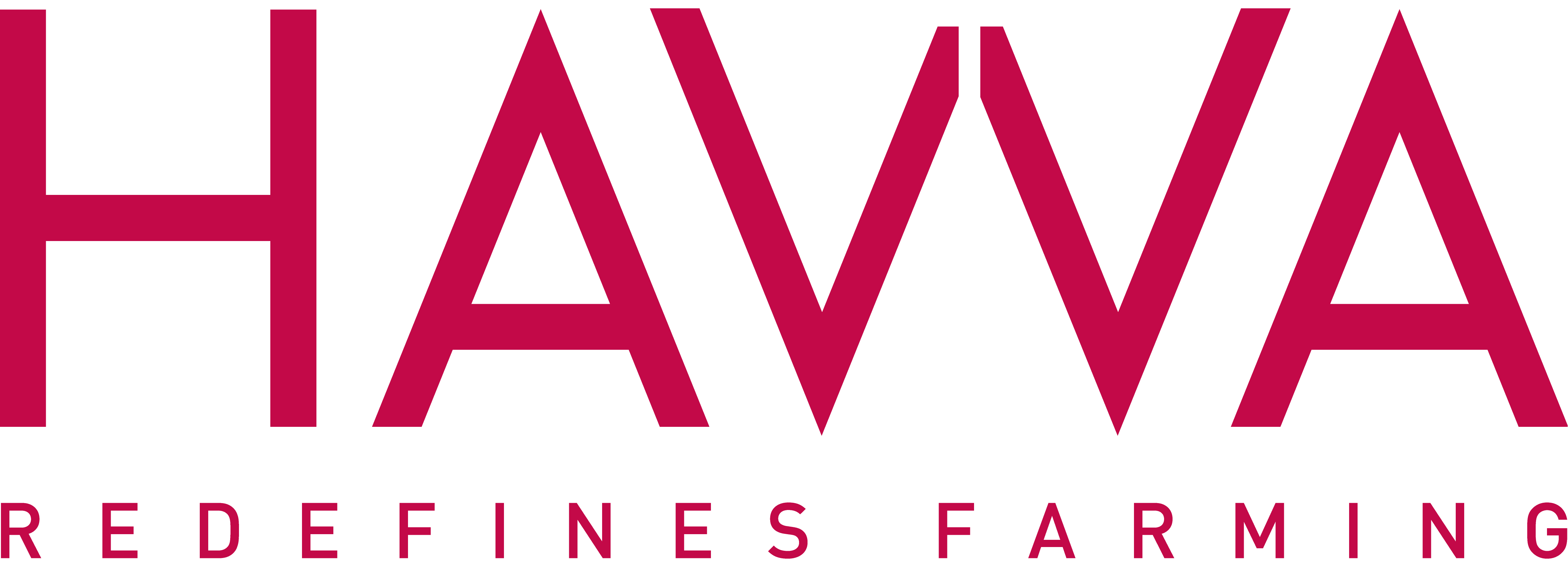ESG VALUE
ESG stands for Environmental, Social and Governance.
It is a framework used to evaluate a company’s performance and impact in these three areas, taking into account factors such as sustainability, ethical practices, social responsibility, and corporate governance.
ESG - URBAN FARMING
Urban farming is a practice that involves growing and producing food in urban areas, utilizing innovative techniques such as vertical farming, rooftop gardens, and hydroponics. It offers corporate companies a unique opportunity to intergrate Environmental, Social and Governance (ESG) principles into their operations. Urban farming aligns with ESG values by promoting sustainable food production, reducing enviromental impact, fostering community engagement, and contributing to social well-being. By embracing urban farming, corporate companies can enhance their ESG performance, demonstrate commitment to sustainability, and create a positive impact on the environment and society.
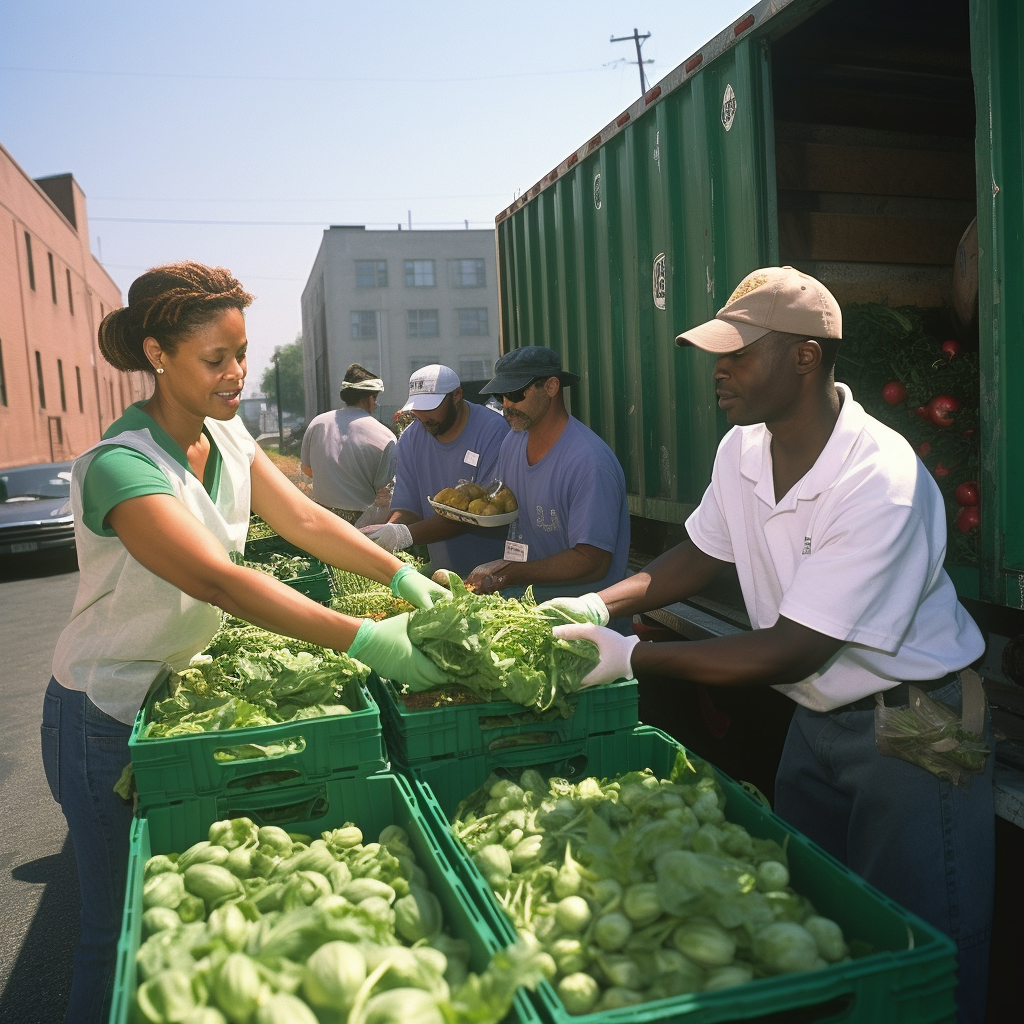
ESG CREATE VALUES FOR COMPANY

1. Enhanced brand reputation and public perception

2. Meeting investor and stakeholder expectation

3. Driving innovation and long-term growth

4. Strengthening customer loyalty and trust

5. Contributing to the achievement of global sustainability goals

6. Creating positive social and enviromental impact

7. Gaining competitive advantage in the market

8. Building resilience in the face of the future challenge
ENVIRONMENTAL VALUES

Resource Efficiency
Efficient use of resources such as water, energy, and raw materials can lead to reduced waste generation, lower resource consumption, and enhanced operational efficiency. Implementing resource efficiency helps companies reduce waste, lower costs, and demonstrate environmental stewardship.

Carbon Footprint Reduction
Grow fresh produce on-site, eliminating the need for long transportation routes. Reduced water consumption contributes to lower energy usage and greenhouse gas emissions. This benefits companies by enhancing reputation through energy efficiency, complying with regulations, and contributing to global climate change mitigation efforts.

Biodiversity Preservation
Companies can contribute to biodiversity conservation by protecting natural habitats, supporting ecological restoration efforts, and promoting sustainable land use practices. By doing this, companies can contribute to the overall health of ecosystems, which provide essential services such as clean air, water and pollination, benefiting both society and planet.

Waste Management
Implementing effective waste management strategies, including recycling, waste reduction, and responsible disposal, can help companies minimize their environmental footprint and promote a circular economy.
SOCIAL VALUES

Social Responsibility
Companies can contribute to food security, promote healthier eating habits, and support local communities through educational initiatives related to modern farming practices. Companies can benefit from positive community relationships, increase customer loyalty can create more market opportunities.

Environmental stewardship
Environmental stewardship refers to the responsible management and protection of the environment. It involves minimizing negative impacts on ecosystems, conserving natural resources, and promoting sustainable practices. By actively practicing environmental stewardship, companies demonstrate their commitment to sustainability and contribute to a healthier and greener world.

Employee engagement and satisfaction
Companies that actively participate in educational initiatives related to modern farming practices can foster a sense of purpose and engagement among employees. Employees are more likely to feel proud on working for a company that contributes to food security and supports local communities, leading to increased job satisfaction and retention.

Social partnership
Facilitates partnerships with stakeholders, communities, and organizations, fostering social impact and shared value creation through urban farming. This can create strong relationships between partners, and contribute to sustainable business practices, positive social impact, and long-term success for companies.
GOVERNANCE VALUES

Stakeholder engagement
Urban farming practices facilitate stakeholder engagement by providing visibility into the company’s environmental practices. This enhances credibility and trust among stakeholders, including investors, customers, and communities, fostering positive relationships.

Long-term sustainability
Strong governance practices contribute to the long-term sustainability of the urban farming initiative. Clear governance structures, strategic planning, and effective management help ensure the project’s viability and success in the face of evolving challenges and market dynamics.

Compliance and Risk Management
Adopting risk management strategies minimizes legal and operational risks. Good governance practices help identify and mitigate potential risks associated with urban farming, such as land use regulations or environmental impacts.

Ethical business practice
Good governance promotes ethical behavior, integrity, and responsible business conduct. By adopting ethical practices in urban farming operations, companies demonstrate their commitment to sustainable and responsible agriculture.
AQUAPONICS SYSTEM
The Aquaponics system is a sustainable farming method that combines aquaculture (fish farming) and hydroponics (growing plants in the water). Fish are raised in a tank, and their waste is converted into nutrients by bacteria. These nutrients are then absorbed by plants, which filter the water and provide clean water for the fish. It creates a mutually beneficial relationship where fish provide nutrients for plants, and plants purify the water for the fish. This closed-loop system requires less water and space compared to traditional farming, making it an efficient and environmentally friendly way to grow both fish and plants.
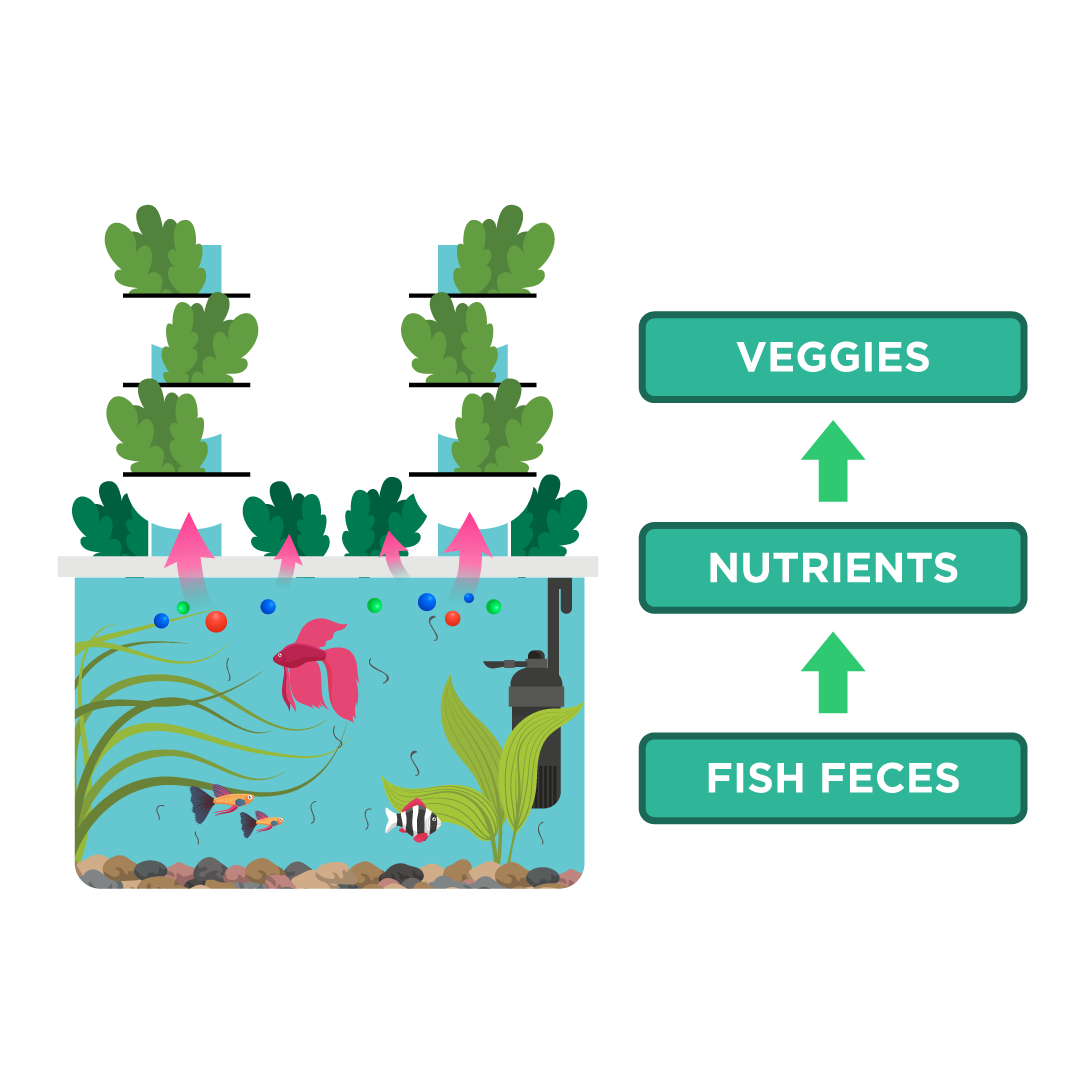
AQUAPONICS CHALLENGES AND CONSIDERATIONS
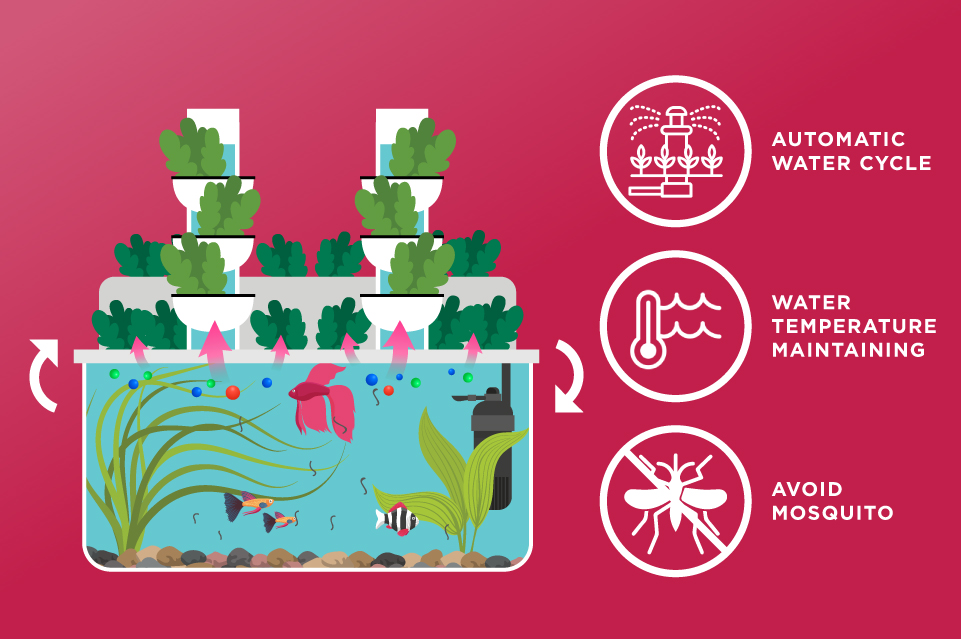
Starting an aquaponics system can be challenging for beginners. It’s because you need to take care of the fish and plants in a delicate balance. You have to constantly check the water conditions like temperature, pH levels, and oxygen. It’s important to make sure the fish waste provides enough nutrients for the plants without overfeeding them. Creating a healthy environment for beneficial bacteria to convert fish waste into plant food takes time. Dealing with issues like fish diseases or plant pests adds more complexity.

Not only that, but DIY-ing the aquaponic system can also be quite challenging. Building and setting up the necessary components, such as the fish tank, grow beds, pumps, and filtration system, require careful planning and technical know-how. Ensuring the right water flow, adequate lighting, and proper insulation for the system can be overwhelming for beginners.
This is why HAVVA created ready-made systems that can be for anyone doesn’t matter if got no experience in farming knowledge! HAVVA offers ready-made systems that provide individuals and organizations with all the necessary components and guidance to start their own urban farming journey easily and efficiently.
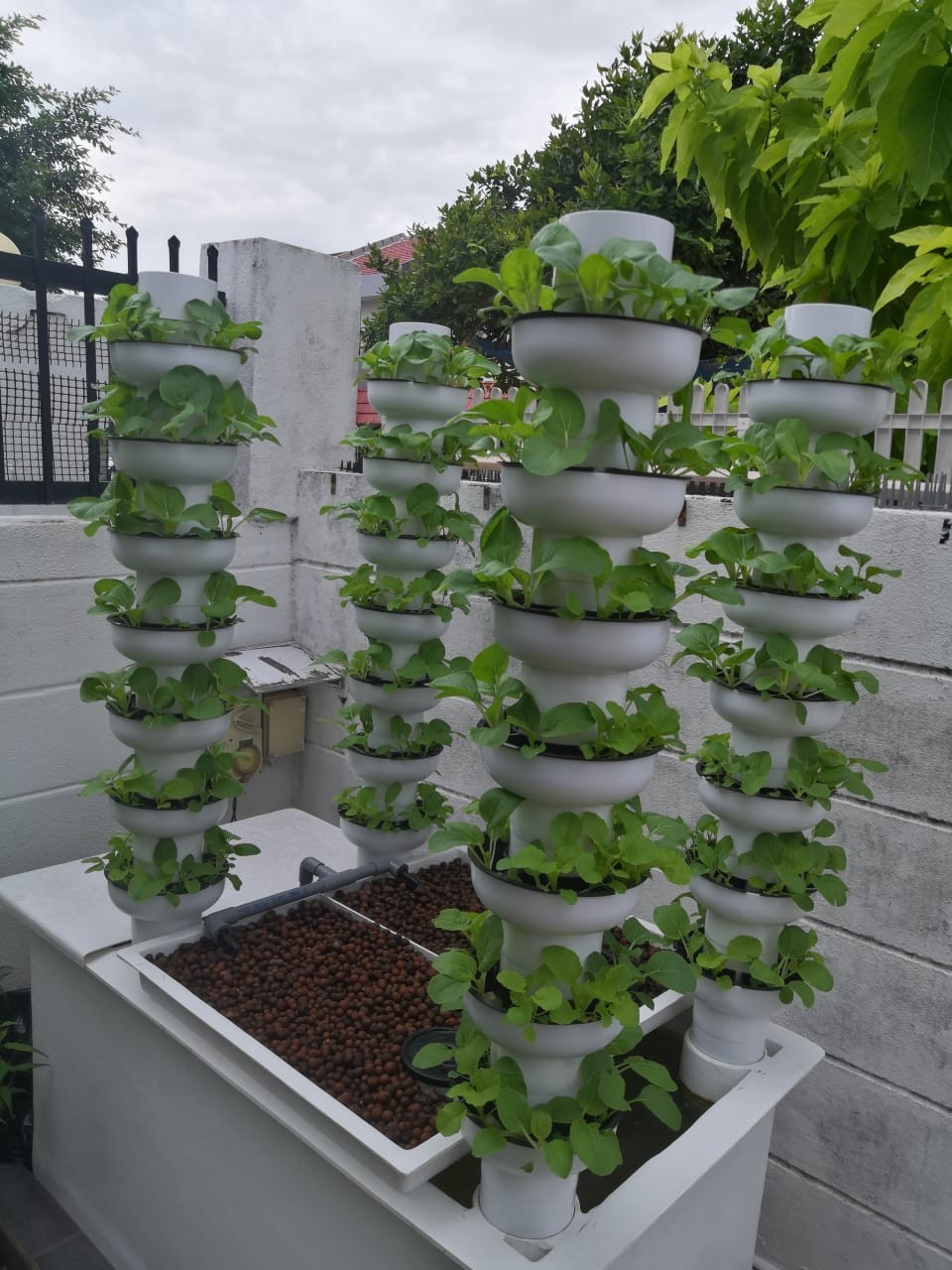
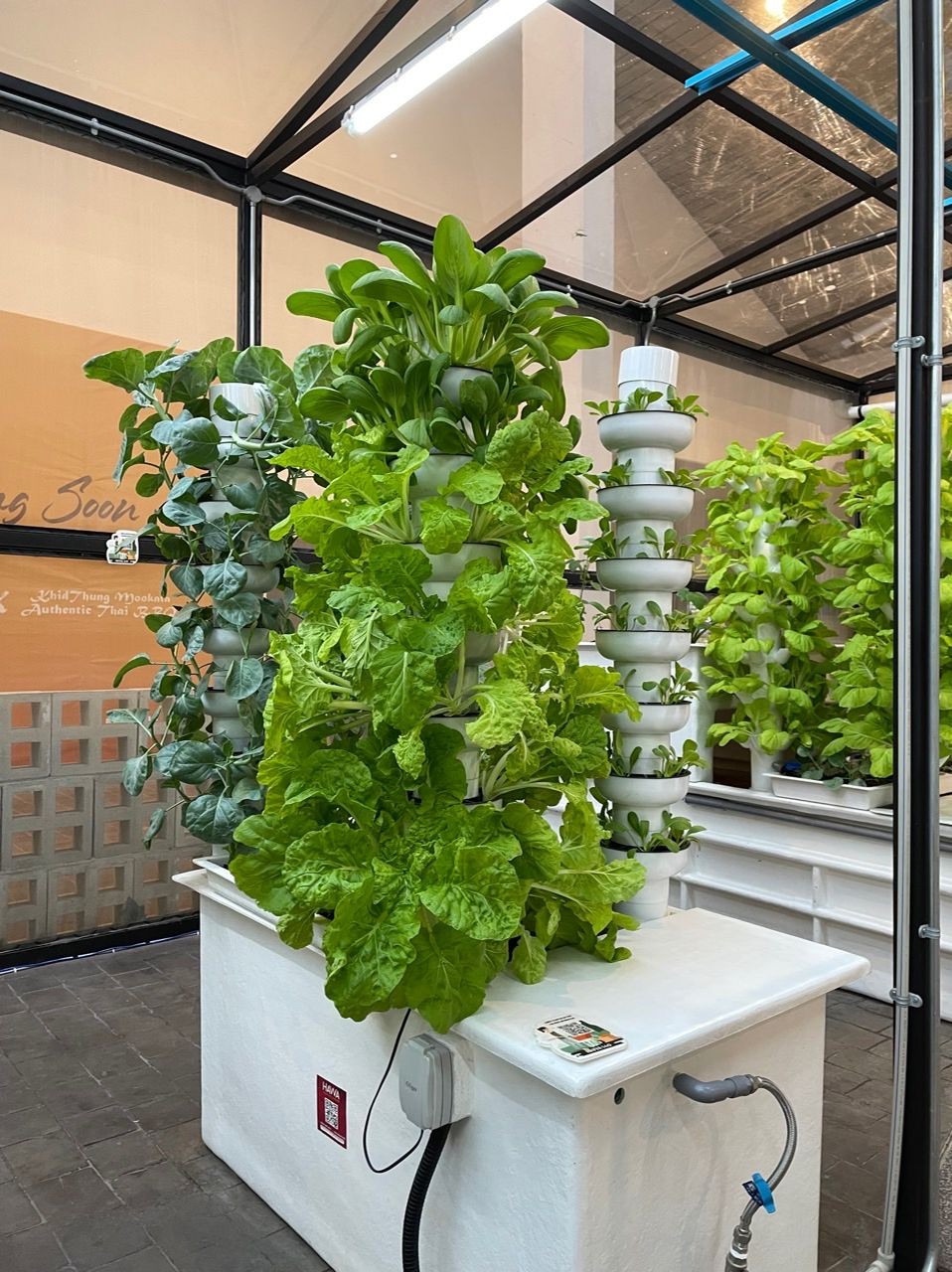
WHY HAVVA?
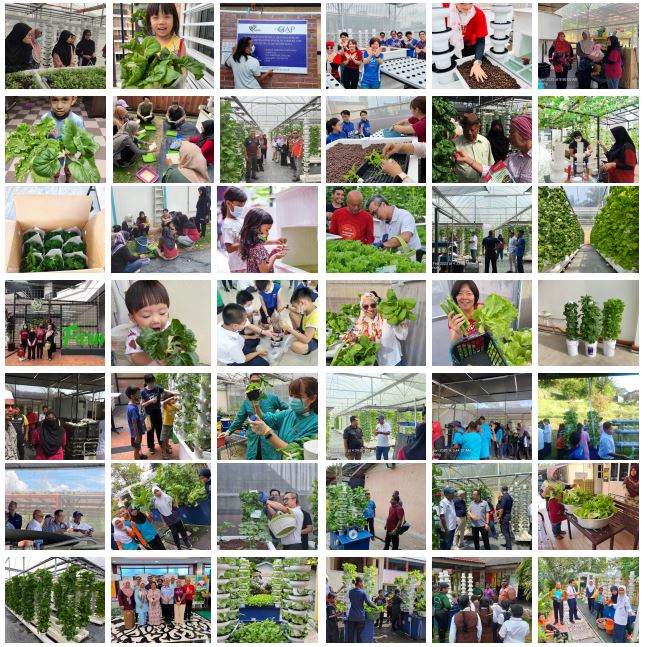
We are pleased to inform you that HAVVA’s ready-made system for growing vegetables has garnered a strong user base of over 400 individuals in Malaysia that grow vegetables with HAVVA ready-made system from the comfort of their homes!
Not only that, HAVVA has collaborated with various organizations to further its mission on sustainable food production using HAVVA urban farming technology.
After Sales Service
HAVVA is committed to provide professional remote support and guidance service through Whatsapp, designed to provide you with the assistance you need in using our system effectively. We offer comprehensive training sessions for the first harvest, covering system operation and educational aspects.

Ping Look Loo
CEO

Tan Kian Chor
COO

HAVVA team
Customer Support
Interested?
Reach us!
+60 109334983
syafiq@havva.my
